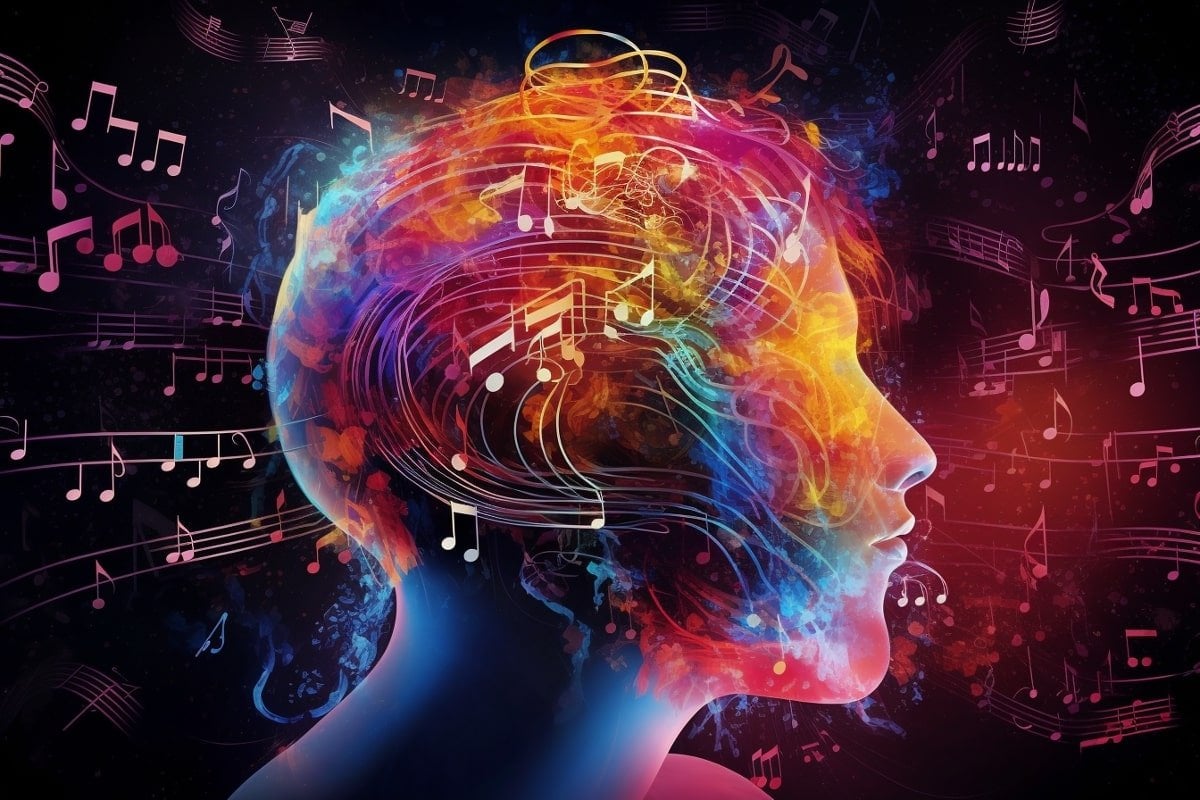Summary: Music engages a multitude of brain areas, showcasing a complex interplay between auditory processing, emotion, and memory centers. It elicits emotions through the release of dopamine, our brain’s pleasure molecule, explaining the joy we often find in a favorite tune.
Moreover, music’s power to evoke vivid memories highlights its connection to the hippocampus, our memory storage center.
This broad influence of music on our brain mechanisms is also harnessed in therapeutic contexts, such as treating neurological disorders or improving mental health.
Key Facts:
- Multiple areas of the brain are engaged when we listen to or create music, including the auditory cortex, prefrontal cortex, motor cortex, and hippocampus.
- Music has a strong influence on our emotions due to its interaction with the brain’s reward system, particularly through the release of dopamine, a neurotransmitter associated with pleasure and reward.
- The connection between music and the hippocampus, a brain area critical for forming and retrieving memories, is why music is frequently used in therapies for conditions like Alzheimer’s and dementia.
Source: Neuroscience News
Music, often considered a universal language, has a profound ability to evoke emotions, memories, and even physical responses such as toe-tapping or head-nodding.
From lullabies that soothe newborns to melodies that uplift the spirit, music’s impact on human behavior and emotion is undeniable. But what happens in our brains when we listen to or create music?
Neuroscience has started to answer these questions, revealing a symphony of activity that helps us understand why music is so powerful.
Music and the Brain: A Synchronized Dance
Listening to or playing music engages multiple areas of the brain, making it an excellent exercise for the mind.
The auditory cortex decodes elements such as pitch and volume, while the frontal regions, including the prefrontal cortex, process the emotional content of music.
The motor cortex gets involved when we tap our foot to the beat or play an instrument, and the hippocampus, a region associated with memory, connects music with our past experiences and emotions.
Music and Emotion: Striking the Right Chord
Have you ever wondered why certain songs make us feel happy, sad, or nostalgic? The answer lies in how music interacts with our brain’s reward system.
Listening to music triggers the release of dopamine, a neurotransmitter associated with pleasure and reward, similar to the response evoked by food, exercise, or even certain drugs.
This release is particularly strong when the music surprises us with an unexpected chord or an exciting crescendo, providing a ‘chills’ or ‘goosebumps’ experience.
Music and Memory: Echoes from the Past
Music has a unique link to our memories. An old song can transport us back to a specific place and time, evoking vivid emotions.
This phenomenon, often referred to as the “soundtrack of our lives,” is due to the strong connection between music and the hippocampus, a brain area critical for forming and retrieving memories.
This connection is why music is frequently used in therapies for conditions like Alzheimer’s and dementia, as familiar tunes can help patients recall past experiences and enhance their cognitive function.
Music and Learning: Setting the Rhythm
Studies have shown that musical training can enhance cognitive abilities. Playing an instrument or singing requires complex motor and cognitive skills, stimulating the brain’s plasticity — its ability to change and adapt as a result of experience.
This can lead to improvements in areas such as language development, attention, memory, and even spatial-temporal skills, which are crucial for solving complex math problems.
Music Therapy: Healing Through Harmony
Given its profound impact on the brain, it’s no surprise that music is increasingly used as a therapeutic tool. Music therapy has shown promise in treating a variety of conditions, including Parkinson’s disease, depression, and stroke.
By leveraging the emotional, cognitive, and motor stimulation that music provides, therapists can help patients improve their mood, cognition, and motor function.
In conclusion, the neuroscience of music is a rapidly growing field that continues to reveal the extensive and profound ways music interacts with our brains. It is not just an art form, but a powerful tool that can bring about emotional, cognitive, and even physical changes, underpinning its vital role in our lives and society.
As we continue to explore the intricate dance between music and the mind, we can look forward to a deeper understanding of why music holds such universal appeal and power.
About this music and neuroscience research news
Author: Press Office
Source: Neuroscience News
Contact: Press Office – Neuroscience News
Image: The image is credited to Neuroscience News








